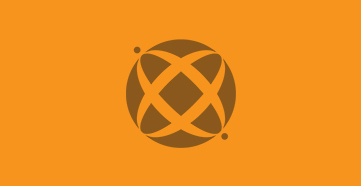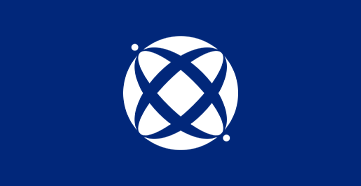|
|
Jan 13, 2025
On 26 April 2024, the Chinese State Council passed the Tariff Law of the People’s Republic of China, which came into force on 1 December 2024. The new law consolidates existing rules in different documents and certain practices in one administrative law.
Jun 12, 2024
The new Foreign State Immunity Law 2023 of the People’s Republic of China came into force on 1 January 2024. This shifts the country (as well as its special administrative regions, Hong Kong and Macau) away from absolute state immunity to restrictive state immunity, bringing it more in line with the relatively prevalent practice among the international community. This article discusses the status of state immunity in public international law, analyses the new law’s provisions and examines practical challenges that will be faced by those seeking to utilise this law to enforce judgments or awards against foreign states and state entities, and the new law’s innovations that go beyond the United Nations Convention on Jurisdictional Immunities of States and Their Property of 2004 and the UK State Immunity Act 1978.

Sep 27, 2023
The rise in popularity of generative artificial intelligence (‘generative AI’) has ignited the discussion on whether junior employees can be replaced by it. Some have gone to the extent of questioning whether professionals, such as lawyers, can also be replaced by generative AI. Is it wise to replace junior employees or lawyers with generative AI? What factors should be considered before deploying generative AI tools in your business? To consider these questions, we first need to understand the basic workings of generative AI and what it can offer. Fundamentally, AI is intelligence that is not biological. The general understanding is that machines will be ascribed with this intelligence. These machines have the ability to interpret, learn from and process external data in a way that is similar to the capabilities of the human mind. Generative AI is a type of AI program that generates content from a data set. It uses deep learning, a type of machine learning system that behaves like a neural network to simulate the functions of a human brain. In other words, it can mimic human intelligence by exhibiting analytical skills to create new content. Not only can generative AI be utilised in chatbot programs to create text, but it can also be used in programs that can create images, sound or videos. This article will consider two major forms of generative AI, in the context of risks to businesses: chatbots using generative pre-trained transformer technology programs; and image generating programs.
Jun 03, 2021
By Samantha J Rowe and Svetlana Portman. ‘Observance of obligations’ clauses in investment treaties – so-called ‘umbrella clauses’ – have been the subject of discussion in the arbitration community for decades. This article explores current trends through the lens of a series of recent decisions addressing umbrella clause claims.
IBA Global Insight October/November 2017: Governments, manufacturers and consumers are moving towards electric vehicles – a significant shift away from fossil fuel. Global Insight assesses who will benefit and who could put on the brakes.

Dec 21, 2023
India is increasingly becoming a key jurisdiction for foreign investment. To keep the momentum going, the Indian government has consistently attempted to keep the business environment friendly and less burdensome. This includes: a reduction in corporate tax rates; easing the liquidity problems of non-banking financial corporations and banks; foreign direct investment policy reforms; and easing compliance norms – all with the aim of promoting ‘ease of doing business in India’. After more than a decade, India’s competition law has recently been amended, bringing about key changes that will impact businesses. The 2023 Amendments to the Indian Competition Act 2002 (the Act) introduce changes that several antitrust jurisdictions are still considering. The 2023 Amendments are a mixed bag of changes: several are business friendly – such as commitments and settlements, expedited merger review timelines and introducing a leniency-plus regime – while others aim to achieve greater regulatory oversight and stricter enforcement, such as deal value thresholds, penalties on global turnover and increased liability for hubs in ‘hub-and-spoke’ cartels. The Competition Commission of India (CCI), the body entrusted with the responsibility to nurture and maintain well-functioning markets that facilitate the growth manifested by the Indian government, must adopt a balanced approach to ensure that competition enforcement does not get in the way of ‘economic growth’ as envisaged under the Preamble of the Act. This article examines the impact of the 2023 Amendments on the Indian market. In particular, the writers examine the CCI’s approach in adopting these tools and tailor it according to the requirements of the Indian economy.
A webinar presented by the IBA Law Firm Management Committee,
Date: 7 May 2021
Time: 1300-1400 BST
Oct 11, 2024
A summary of the IBA Aviation Law Committee’s activities at the IBA Annual Conference in Mexico City from 15–20 September 2024.
May 20, 2022
The war in Ukraine has brought an awareness of the extremely dire consequences of corruption. Global Insight examines the dangers of leaving legal systems open to abuse by the rich and powerful
Mar 04, 2022
The article begins by introducing the problem of inconsistency and contradictory decisions within the framework of international commercial and investment arbitration. Then, starting from the premises surrounding the use of legal precedents in both national and international contexts, the article considers the possibility of having a precedent value rule as a tool to increase predictability and consistency in international arbitration. After considering the reasons why such a rule does not and could not exist and why it cannot be applied to international arbitration as a whole, the article discusses the options available to increase predictability and consistency in the international arbitration system.
Aug 12, 2021
Video games often include real-life 3D objects, particularly if the game is to be realistic. The trouble with real-life objects is that they may be protected by various intellectual property rights. Unless the right holder has consented to the real-life object being used in the game, the game’s developer or publisher risk infringing IP. The article discusses reported cases from the US and EU regarding in-game use of 3D objects.
Jan 17, 2024
The impact of the Covid-19 pandemic is still reverberating across multiple areas of law, from procurement to employment. Global Insight assesses how the experience will prepare us – and the law – for future pandemics.
Jun 02, 2021
While the pandemic disruption has extended for far longer than initially expected, courts (after the first wave), arbitral institutions and stakeholders in commercial dispute resolution have largely continued operations, increasingly supported by innovative digital technology, flexible scheduling and flexible cost structures, among other tools.
Jun 10, 2020
The pandemic has stopped the world of sport in its tracks. With the first tentative steps to restart elite competition being taken, or considered, Global Insight assesses the wide-ranging implications.

Feb 17, 2025
Since the introduction of the legislative regime for class actions in Canada, there has been a growing number, size and scope of legal claims being litigated as class proceedings in Canada, including mass consumer class actions. As most class actions settle before proceeding to trial, and the court must approve any class action settlement, this has led to increased judicial scrutiny of class action settlements, and a growing body of case law in Canada analysing what a class action settlement that is fair, reasonable and in the best interest of the class members looks like, particularly in the unique context of a mass consumer class action. In this article, we provide an in-depth review of the law in Canada concerning the settlement of mass consumer class actions, outline the observed trend of increased judicial scrutiny over mass consumer class action settlements and ultimately conclude that the question of whether a settlement is fair, reasonable and in the best interest of the class can be a challenging question to answer in mass consumer class actions, given the unique features of these types of claims.
Jan 12, 2024
In this session at the IBA Annual Conference in Paris, a group of experts from various backgrounds addressed topics such as doping, bribery, governance and social responsibility, and offered a comprehensive examination of the complex issues plaguing the world of sport.
Jan 13, 2025
The IBA’s Criminal Law Section (made up of the Criminal Law, Business Crime, Anti-Corruption and Asset Recovery Committees) has closed 2024 with another successful conference; this time in Mexico City, where around 5,000 delegates gathered to exchange ideas, discuss the latest hot topics in the legal world and – of course – experience Mexican food, music and culture (including a memorable trip to a Lucha Libre wrestling competition).
|













